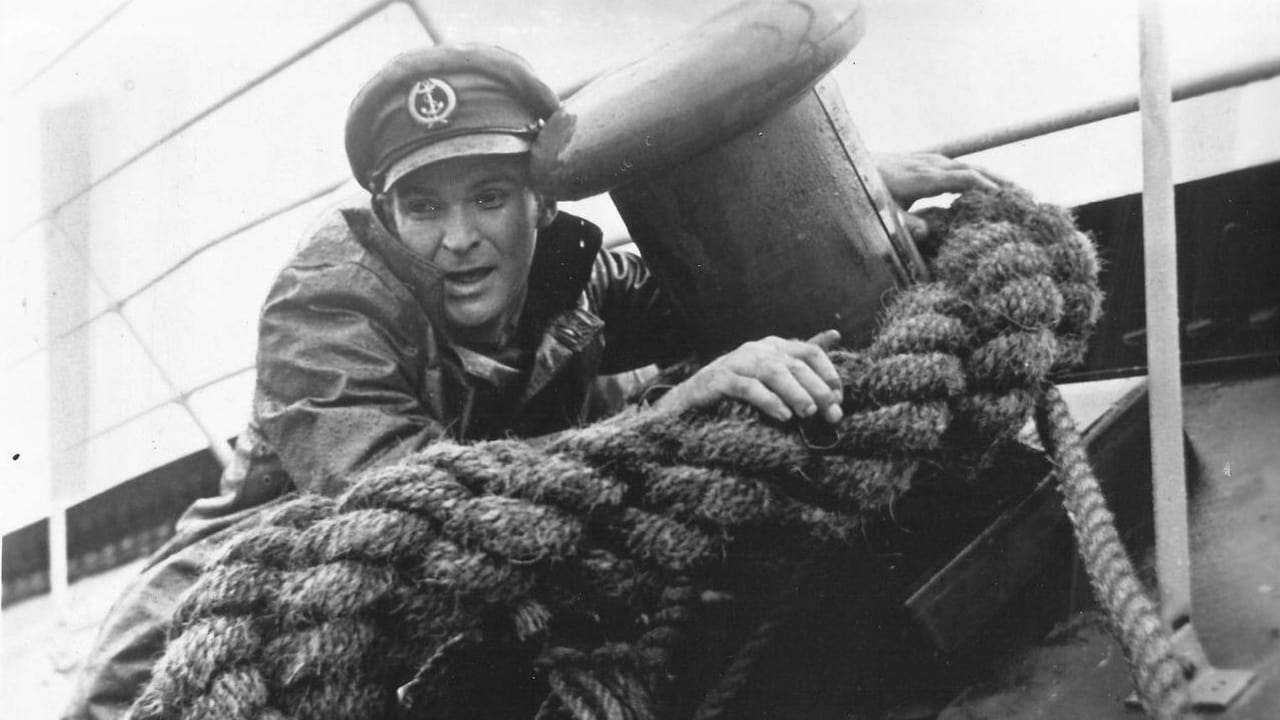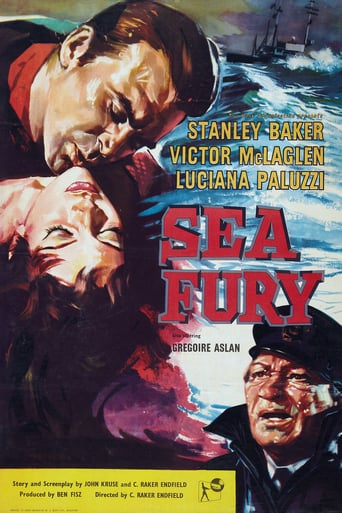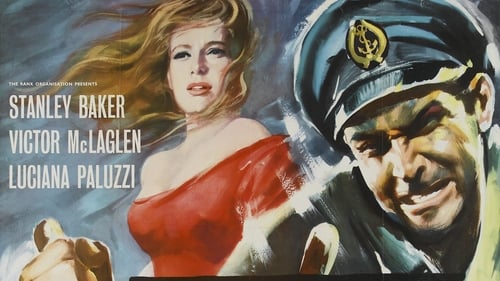




Such a frustrating disappointment
It's not great by any means, but it's a pretty good movie that didn't leave me filled with regret for investing time in it.
View MoreInstead, you get a movie that's enjoyable enough, but leaves you feeling like it could have been much, much more.
View MoreThis is a small, humorous movie in some ways, but it has a huge heart. What a nice experience.
View MoreFirstly can I make the point that although this site shows Baker as top billed it is Mclaglen who was top billed and the name above the title.Mclaglen was an actor who was rarely capable of giving a restrained performance.He needed someone of the calibre of John Ford in getting him to be more restrained.Here he is rather odd because he lusts after a woman young enough to be his granddaughter.Difficult to know whether the director was serious about suggesting this romance.Anyway all the action is reserved for the climax which involves Stanley Baker.IThe end of a long career for Victor.
View MoreSEA FURY is a British slice of seafaring drama that sees Stanley Baker (a ubiquitous presence in British cinema of the 1950s) joining the crew of a tugboat that spends a lot of time searching for stricken vessels to claim the salvage rights to. Unfortunately, for the majority of the running time this plays out as a romantic melodrama, and as such it's occasionally turgid and rather long-winded. Baker falls for the voluptuous charms of Luciana Paluzzi (and who can blame him?) but salty sea-dog Victor McLaglen also has his sights on here.Thankfully the film does pick up for a thoroughly suspenseful climax involving a cargo of dangerous chemicals on an abandoned ship in a storm, and Baker really comes into his own at this point; it's just a pity it takes so long to get to this point. Still, the film is worth watching if for no other reason to see an excellent supporting cast at play. Keep your eyes open for the likes of Robert Shaw, Francis De Wolff, Joe Robinson, Percy Herbert, Rupert Davies, Roger Delgado, Barry Foster, and Dermot Walsh, many of them appearing long before they became famous.
View MoreA tiny handful of people have had the adventurous life Victor McLaglen had. To give you an idea, his rich and rollicking autobiography was published near the *beginning* of his acting career, a career that would later give him a Best Actor Oscar and a Best Supporting Actor nomination almost two decades after *that*. Before becoming an actor, he managed to fight in both the Boer War and World War I, fight (in a different sense) freshly-crowned heavyweight champion Jack Johnson, play vaudeville, mine for gold, and serve as Provost Marshall for the city of Baghdad! McLaglen was neither a grandly handsome actor nor a great one (though he gave a few great performances, most notably the one that won him the Oscar, in John Ford's brilliant 1935 "The Informer.") He was big and broad, both in stature and in performance, and his most famous roles ("The Informer," "The Quiet Man," "She Wore a Yellow Ribbon," etc.) made use of both aspects. He lived to be 72, and every one of those years showed up on his face. His later films rarely gave him much of interest to do, and he seemed tired and passive in some of them.Therefore, his very last film, "Sea Fury," came as a surprise to me. In this British film, made only a few months before McLaglen's death, he is actually at one corner of a love triangle and displays much of the roughneck quality that infused so much of his early work. In this British film, McLaglen's first in his native country since silent days, he plays a tugboat captain who is tempted by a young woman's mercenary father into falling in love with her. The father knows that such a husband for his daughter would not live long and would make her wealthy at his death (at least by the standards of her Spanish village). The captain knows he should not be so foolish as to hope for the love of a girl fifty years his junior, yet hearts and minds do not always think alike, and the captain's heart overrules his wisdom.Lucianna Paluzzi, who would later make a bit of a splash as the bad Bond girl opposite Sean Connery in "Thunderball," is here a deliciously innocent yet wildly tempting young girl, and most of her scenes leave no doubt that any man with a heterosexual heartbeat would have trouble not falling for her. One who does is a sailor played by Stanley Baker, one of Britain's better leading men of the period, albeit one who did not rise to quite the worldwide fame of his contemporaries like Richard Burton and Richard Harris. Baker's sailor signs on as a seaman aboard McLaglen's tug, and trouble of course arises when he and the girl fall hard for each other.What seems bound to become a rather typical love-triangle movie turns out not to be, due in part to the very age difference between McLaglen and the girl, something that (unlike in many Hollywood films) is not ignored but actually confronted in the drama. Also, the film is a wonderful slice of a life that is at once quite real and quite unfamiliar to most of us. The Spanish village where the sailors live while waiting on news of wrecks they can sail out to salvage, and life aboard the tugboats, are both given a most believable and interesting depiction. They're not mere locations but living, breathing unique situations that seem rooted in reality.The final portion of the film is a terrifically exciting sequence aboard a wrecked ship in which the actors seem to be in almost as much danger as the characters they portray. The whole movie is much more exciting and affecting than I ever expected it to be, and it is a touching and quite fitting farewell to Victor McLaglen, one of the most remarkable figures in film history.
View MoreFor a man who lived and tasted more of life before his movie career began in the late twenties than most actors, indeed most people will ever know, it is fitting to see Vic in his old form one last time. The film is peppered with references to his life both on and off stage. From the opening sequence with him barking orders and bodily shoving people aside, we see that though in his early seventies, he's still got enough for one last performance.The scene where he pins a medal on Stanley Baker, and plays his trademark rough-an-tumble drunk is classic McLaglen. His half-hearted attempt at courting the lovely Luciana Paluzzi culminates in an amusing treat of a scene that ends with Paluzzi storming out of the captain's cabin and Victor picking himself up off the floor.Later we find Vic's character Captain Bellew with Stanley Baker's Abel Hewson on the bridge, as Bellew describes an experience from his early days at sea, and declares that he's done a bit of everything in his time. He says it with an honest conviction because he is quite easily telling the truth about his own life.In all, I rate it a great watch for anyone who admires the man's irrepressible zest for life and the adventurous tale of his winding course through it. One of the last great men of the Victorian Era takes his bow with this one.
View More